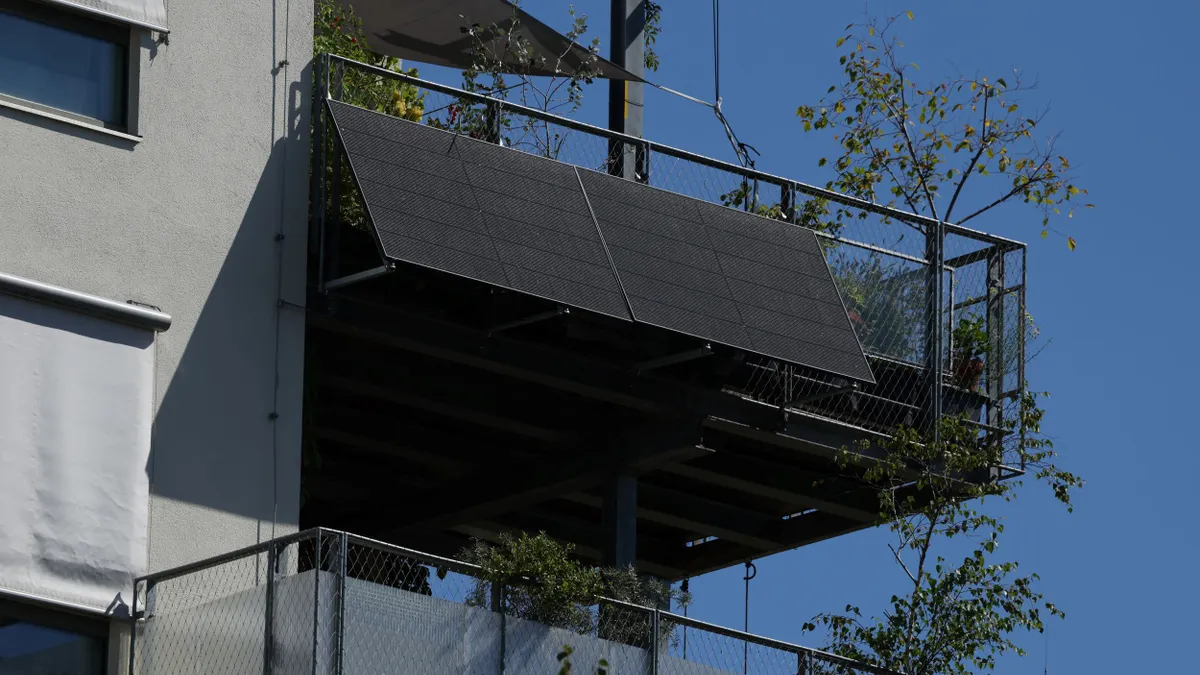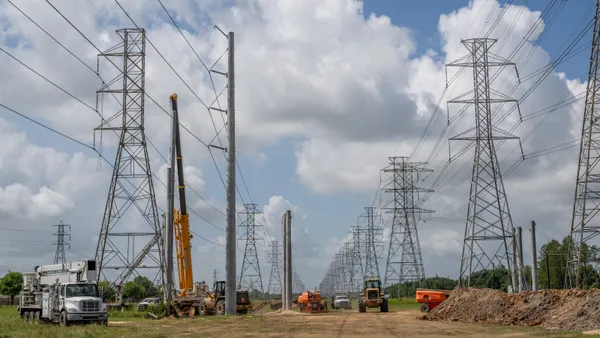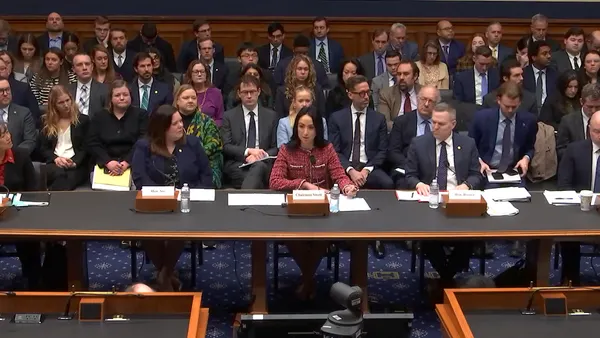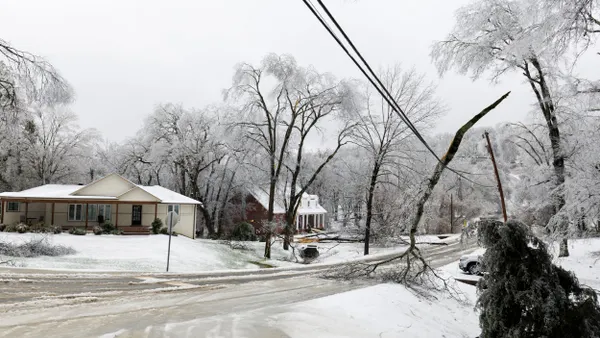Dive Brief:
- The U.S. Supreme Court on Monday agreed to hear a consolidated case regarding the split between federal and state authority over interstate power markets, SNL reports, examining some of the same issues at play in the high profile fight over demand response heard at the High Court last week.
- Both cases focus on incentive programs for new generation in Maryland that call into question the extent of the FERC's authority to regulate the wholesale sale of electricity across state lines. Two lower courts previously tossed out the programs, saying that providing incentives for generation that would compete in regional markets violated FERC's sole authority to regulate interstate wholesale markets. The court has yet to decide whether it will hear a similar case originating from a New Jersey generation incentive program.
- Maryland and a group of generators appealed to the Supreme Court, arguing that the programs do not directly set wholesale prices, but instead simply provide financial arrangements to facilitate new generation construction. Both states initiated their programs due to concerns that the PJM market structure is too focused on the short term to provide reliability and low rates years into the future.
Dive Insight:
Echoing the notable Supreme Court case about state and federal jurisdiction over demand response (FERC Order 745), the Supreme Court is tackling two other cases with similar themes, and their decision could hint at their direction down the road for the marquee demand response case argued at the court last week, SNL reports.
At issue in the two cases is FERC's ability to stop state programs aimed at boosting confidence in power plant development. In Maryland and New Jersey, state programs allowed capacity developers to be guaranteed a certain price for power in wholesale markets. Without those financial incentives — administered by the state — utility officials and regulators worried that plants necessary for long-term reliability would not be built.
Critics of the programs, however, saw the programs as an encroachment on their sole authority to regulate power markets, as well as a manipulation of PJM market rules and practices.
In the Maryland case, the U.S. Court of Appeals for the 4th Circuit upheld a lower court's decision in June, finding that the program "strikes at the heart" of FERC's ability to establish rates for electricity sales across state lines, and could distort PJM auction rates. In the New Jersey case, the Court of Appeals for the 3rd Circuit similarly ruled that the state program effectively sets capacity prices, which is FERC's authority under the Federal Power Act.
New Jersey, Maryland and Commercial Power Ventures of Maryland requested that the high court to reinstate those programs, saying the rulings from the lower courts have hindered their ability to ensure reliable electricity generation and didn't preserve state authority over electrical generation. From their perspective, the ability of state regulators to ensure there is ample generation for reliability should not be hampered by federal control of interstate electricity sales.
In their filing, FERC and the U.S. solicitor general noted that the 3rd and 4th circuit courts limited their ruling to specifics issues in the programs and offered other ways for the state to encourage new generation. However, the National Association of Regulatory Utility Commissioners said in its brief that FERC's opposition threatens the states' jurisdiction over integrated resource planning and hampers building new generation.
SNL reports that questioning during Order 745 oral arguments, along with Justice Samuel Alito's recusal from the case, could indicate a split decision over the commission's ability to regulate demand response in wholesale markets. That could possibly help explain the court's decision to take up the new cases, which could address similar issues. A split decision on the 745 case would mean an earlier ruling by the D.C. Circuit vacating the FERC rule would stand.
During Order 745 arguments last week, Justice Anthony Kennedy – typically the swing vote in the court – acknowledged wholesale and retail markets affect each other, but was less inscrutable on the issue of where to draw the line.
The Supreme Court could hear the consolidated Maryland cases (Hughes v PPL EnergyPlus and CPV Maryland v. PPL EnergyPlus) in the first quarter of next year. It has not yet issued a decsion on whether it will hear cases originating from the New Jersey program.
Correction: This post originally stated that the Supreme Court agreed to hear a consolidated case involving cases from New Jersey and Maryland. That was incorrect. The court agreed to hear two consolidated Maryland cases, and has not yet decided whether it will review the New Jersey program.













